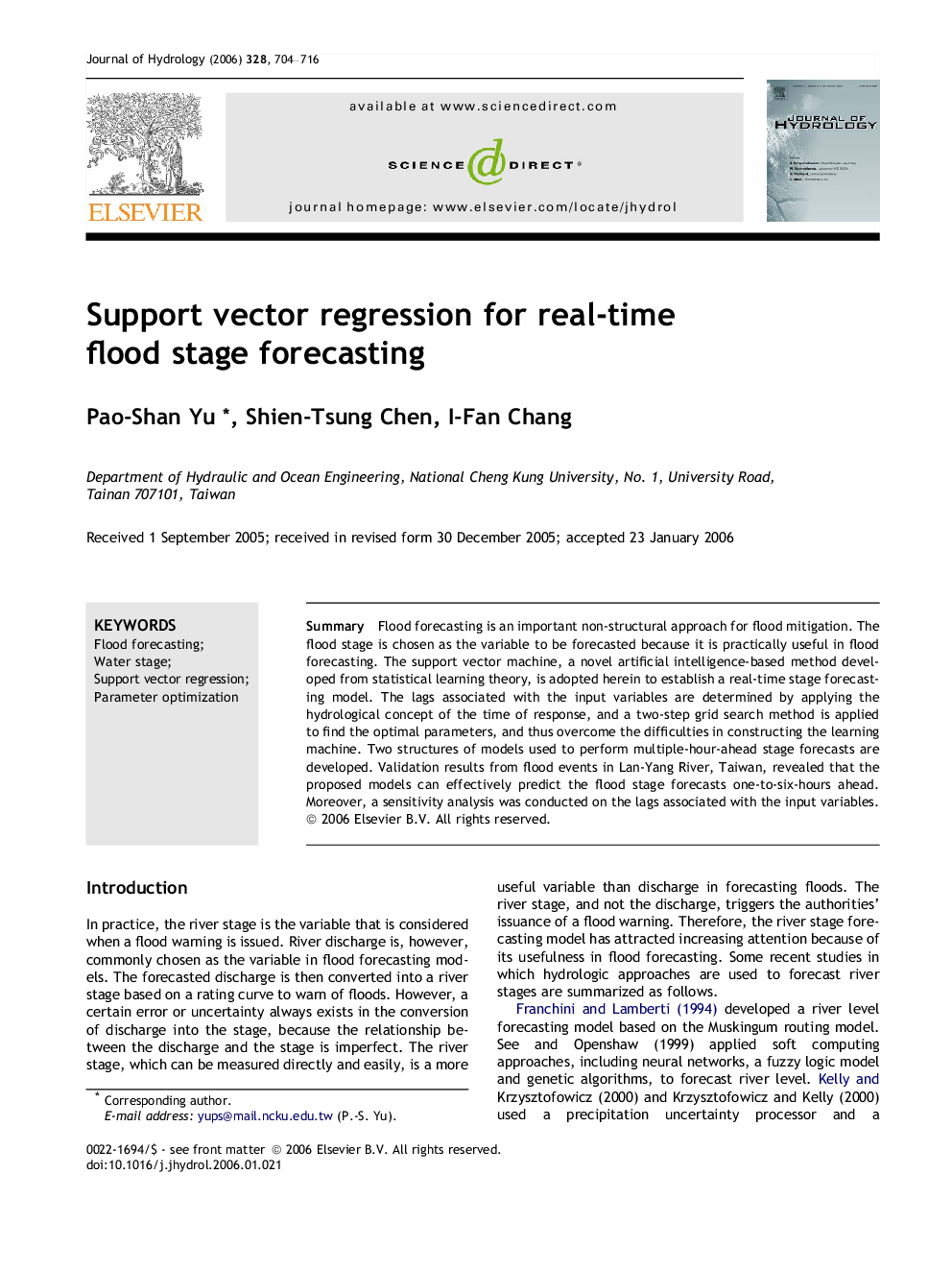| Article ID | Journal | Published Year | Pages | File Type |
|---|---|---|---|---|
| 4580605 | Journal of Hydrology | 2006 | 13 Pages |
SummaryFlood forecasting is an important non-structural approach for flood mitigation. The flood stage is chosen as the variable to be forecasted because it is practically useful in flood forecasting. The support vector machine, a novel artificial intelligence-based method developed from statistical learning theory, is adopted herein to establish a real-time stage forecasting model. The lags associated with the input variables are determined by applying the hydrological concept of the time of response, and a two-step grid search method is applied to find the optimal parameters, and thus overcome the difficulties in constructing the learning machine. Two structures of models used to perform multiple-hour-ahead stage forecasts are developed. Validation results from flood events in Lan-Yang River, Taiwan, revealed that the proposed models can effectively predict the flood stage forecasts one-to-six-hours ahead. Moreover, a sensitivity analysis was conducted on the lags associated with the input variables.
